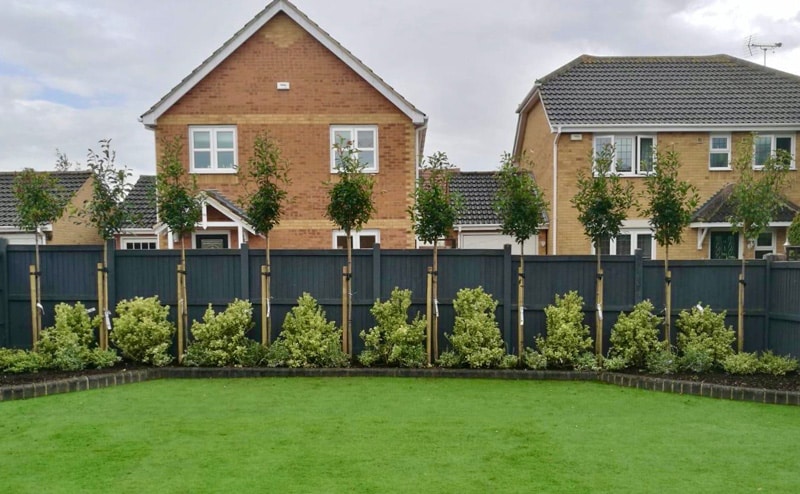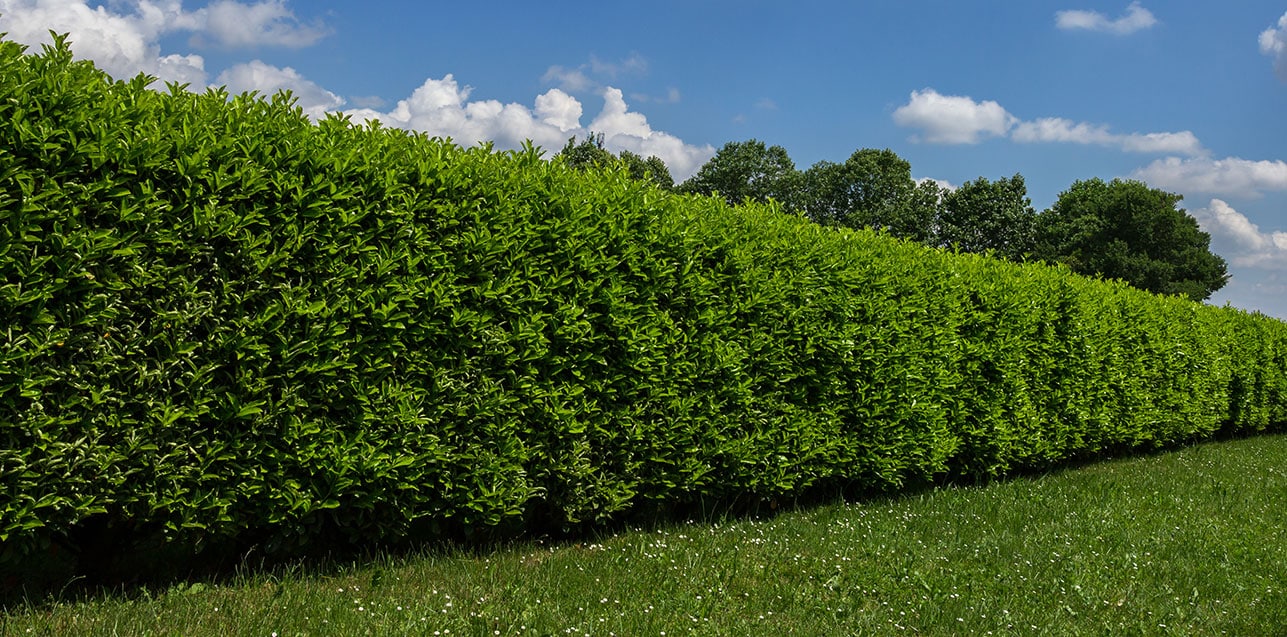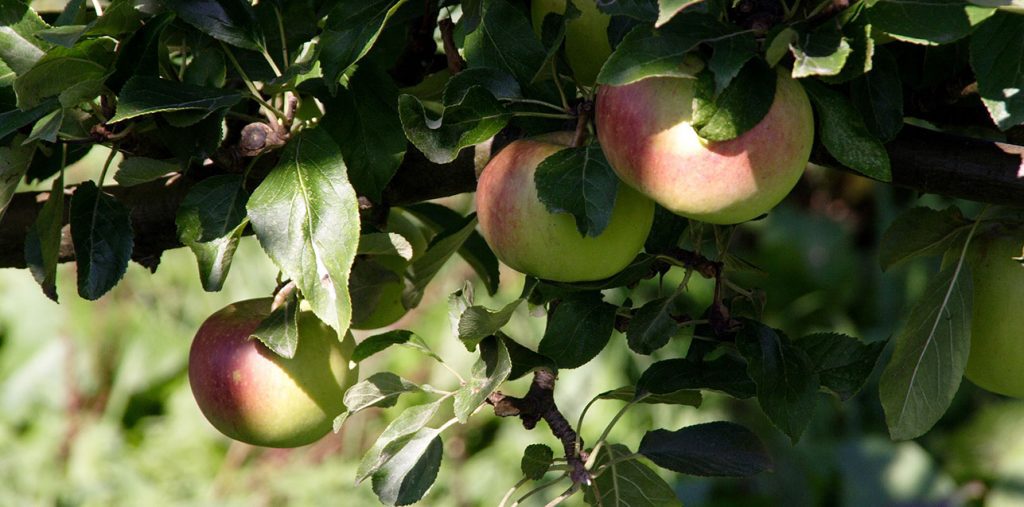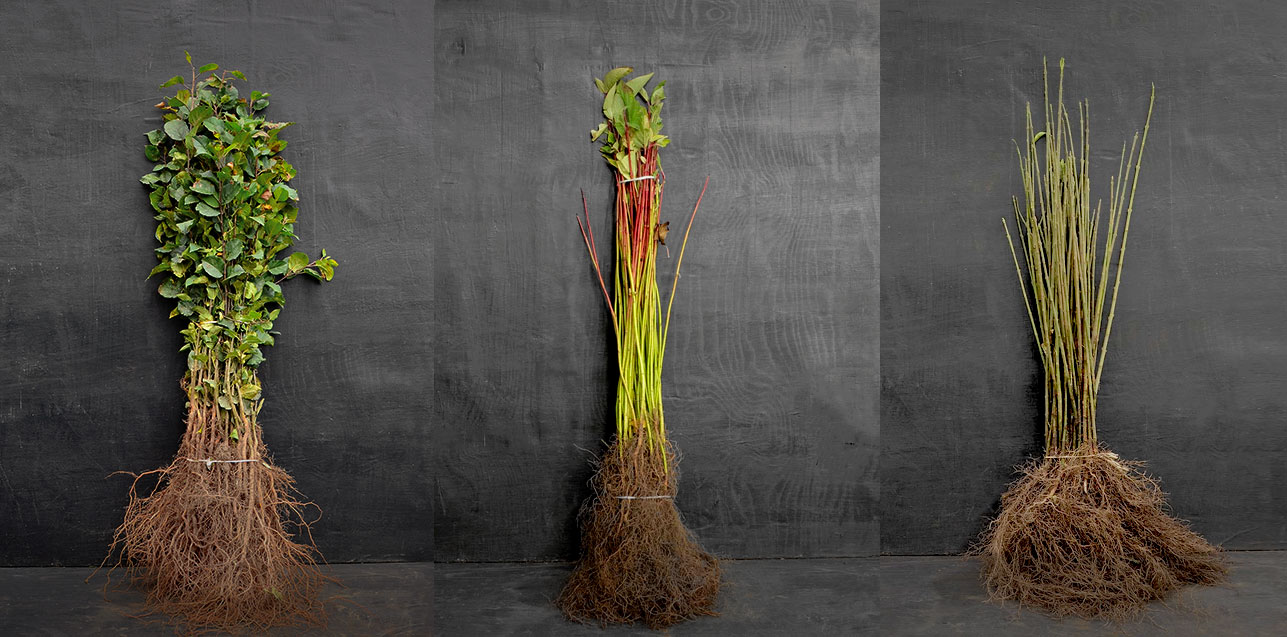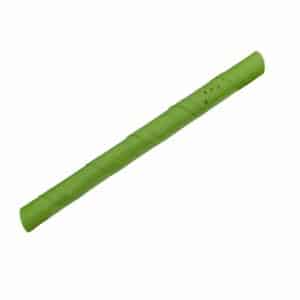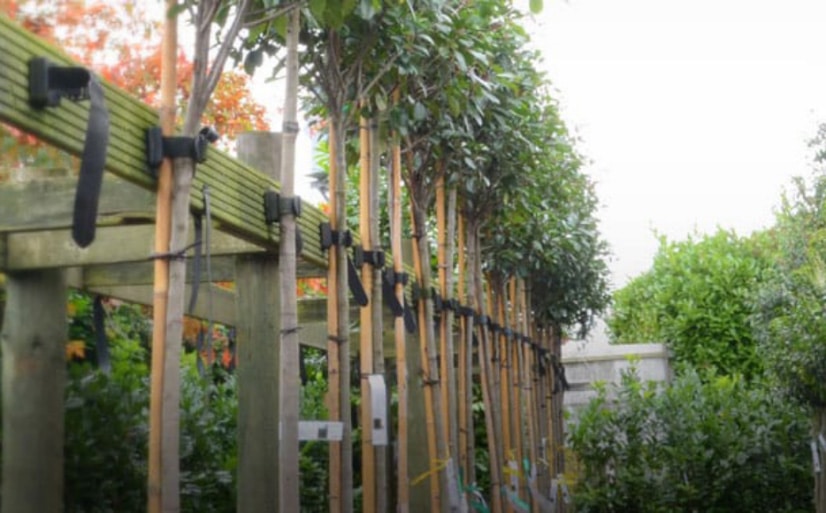Here we detail our top native bare root hedging plants, along with our complete hedging packs and biodegradable accessories.
Biodegradable Planting Accessories for Bare Root Hedging Plants
We are delighted to be able to supply biodegradable tree shelters and bio spirals this planting season. Add these to your basket for using with your bare root hedging plants for the upcoming season. More information can be found on the product pages below!
Most Popular Native Bare Root Hedging Plants
Common dogwood – Cornus sanguinea
Cornus Sanguinea is found in most British hedgerows and is used to provide all year round interest; flowers in spring, red autumn leaf colour and bright stems in winter. Common Dogwood is a medium-sized, fast-growing deciduous shrub with medium/ large green leaves turning yellow and orange in autumn. Also produces white flowers in spring, followed by dark blue fruits. It has green-tinged red stems that provide good colour in autumn. Grows in most soils and ideal in wetter sites.
Field Maple – Acer campestre
Acer campestre, or Field Maple, is deciduous and one of our toughest native hedging species. Generally found within hedgerows,the stunning gold and red autumn foliage make this plant a must-have in any mixed planting schemes. Leaves are small and dark green with the distinctive palmate lobes. As the foliage emerges small posies of yellow /green flowers appear in spring.
Hawthorn – Crataegus monogyna
Common Hawthorn, also known as Quickthorn or May Blossom. Hawthorn is a fast-growing deciduous, native tree that has always been used for hedging and field boundaries. Hawthorn has fragrant white flowers in late spring just as the small, green, Maple like leaves appear. Dark red berries follow in autumn much loved by wildlife. Hawthorn plants are fast-growing and respond very well to clipping so are often used to create a boundary hedge, the sharp thorns make this plant a very good defensive hedge.
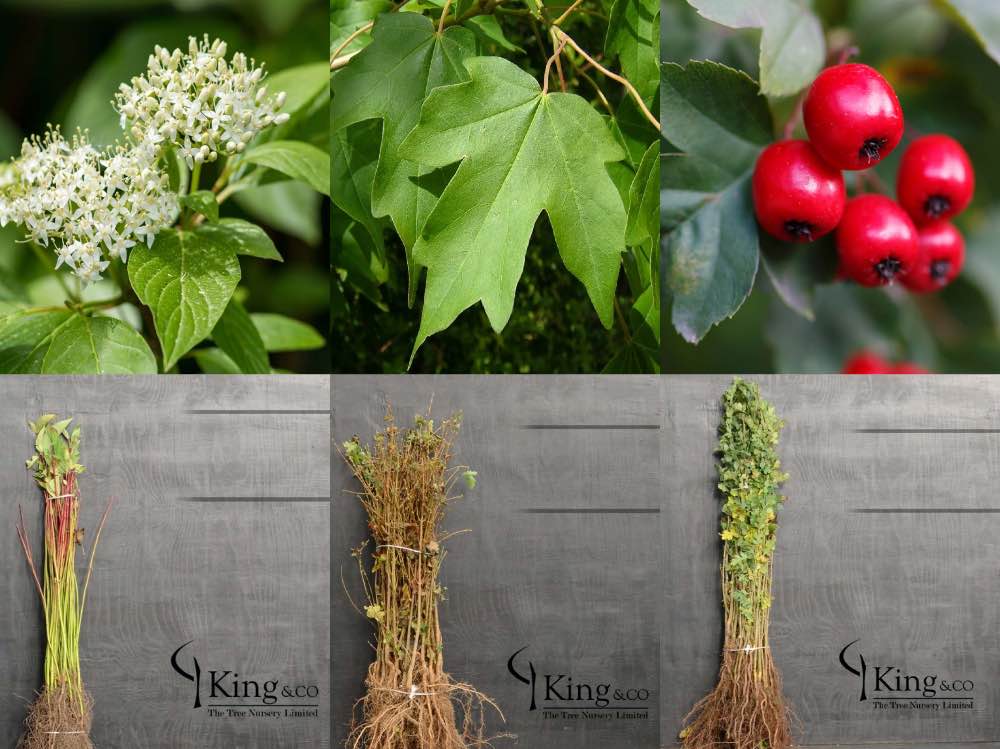
Blackthorn – Prunus spinosa
Also known as Blackthorn or Sloe bush, this plant has small white flowers which appear early in spring before the oval shape, green leaves appear. In autumn masses of small, blue/black edible berries or sloes appear. At the same time the leaves turn to yellow before falling quite late in the year. The sloe bush lives up to its name with very hard and sharp thorns which when the plant is clipped as a hedge make a great intruder deterrent.
Hazel – Corlyus avellana
Corylus Avellana or Hazel is another very common site in British hedgerows and is commonly coppiced and cultivated for its ‘Hazelnuts’. A small, native tree that produces large amounts of edible nuts in autumn. Hazel has large round, bright green leaves held on upright stems with pendulous ends, easily coppiced, meaning that it is frequently found in British hedgerows. Long yellow catkins appear very early in spring giving hazel trees a burst of colour before many others have come into leaf. Grows as a multi-stemmed tree if cut back and fills gaps in hedges very well.
Dog Rose – Rosa canina
Rosa canina or Dogrose is a fast-growing, native rose plant that is a common sight in British hedgerows. Large, fragrant pink / white flowers in spring and bright red fruits in autumn make it a very pretty plant. Sharp thorns on its long, arching branches make it excellent for keeping out unwelcome visitors. Dog Rose is a great choice for attracting wildlife.
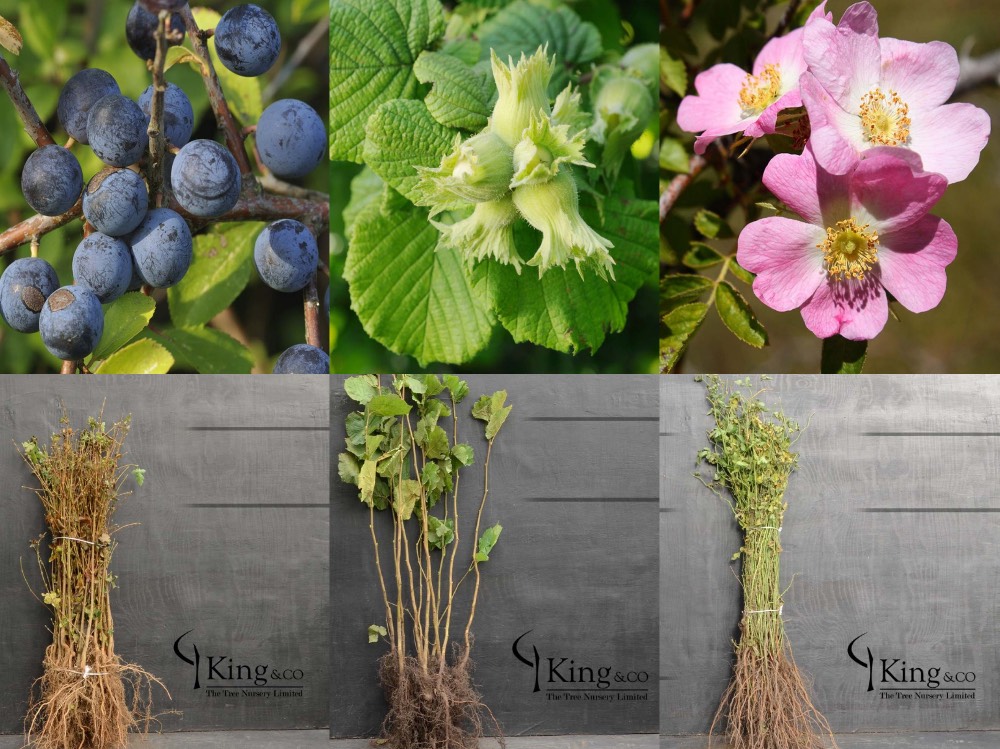
Hornbeam – Carpinus betulus
Carpinus betulus is widely planted in this country. Its full form is often used to create structure and screening. The native hornbeam is one of the most important trees in the British Isles. It thrives on clay soils, amongst others and can be grown as a specimen tree or to form a spectacular hedge. Bright-green ovate leaves turning orange-brown in the autumn and hang on the tree long into the winter.
Spindleberry – Euonymus europaeus
Spindle is a great plant for autumn interest, as its red fruits open to show vivid orange-cased seeds. A fast-growing, small tree or deciduous shrub with mid-green leaves which turn a brilliant red in autumn, producing small red fruits which open to reveal bright orange seed cases. Grows on all free draining soils and does very well on chalk. Very tough plant once established.
Common Buckthorn – Rhamus cathartica
Common Buckthorn will form thorny thickets that are quite impenetrable and make a home to all sorts of wildlife. The plant produces yellow and green flowers in spring, followed by red berries that ripen to black in autumn. The oval dark green glossy leaves turn yellow before falling in autumn.
Common Holly – Ilex aquifolium
Common Holly is a slower growing, medium-sized evergreen with dark, glossy, spiky leaves and red berries in the autumn. Holly is particularly shade tolerant and suited to clay soils.
Complete hedging packs
Complete Hedging packs contain the plants, spirals and canes calculated to your desired length of hedge.
The Complete Hedging packs range from 5 metre to 100 metre depending on your hedging needs. The varieties included in the hedging packs include: Common Box, Common Privet, Golden Privet, Green Beech, Hawthorn, Hornbeam and Purple Beech.
Read More
Shopping Online
You can buy trees, hedging, screening trees, shrubs and topiary online by browsing our website. If you do not see a plant or size that is suitable for you then please call as we stock a wide variety of plants in our tree nursery. It’s worth noting that many other websites sell other people’s stock (i.e. they act as an agent) so you cannot view the products at their own site.
At King & Co, all of our advertised plants are available for viewing at our tree nursery in Rayne, near Braintree, situated just over an hours drive out of London. Our knowledgeable and experienced tree nursery staff are contactable on 01376 340469. If you have any questions regarding any of our trees or accessories. If you cannot see what you require on our website, please complete the enquiry form. We will give it our urgent attention and will get back to you shortly with a solution that meets your needs.

